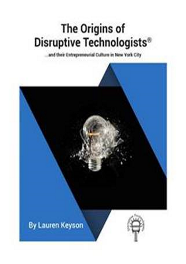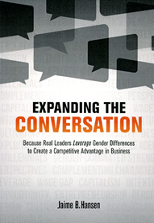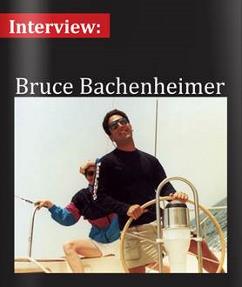
Professor Bruce Bachenheimer
Home
Media
Presentations
Service and Associations
Honors and Awards
Professional Experience
Teaching Experience
Bio (PDF)
Print and Internet 2016-2018

Original Link
Want to Diversify? Start Here
September 2018 (Vol. 47, Issue 7, Page 17 print edition)
By Elizabeth O’Brien
“It’s important for you to think of yourself as CEO of [Your Name Here],” says Bruce Bachenheimer, professor of management at Pace University in Manhattan. No matter what your field, you can put an entrepreneurial mindset to your advantage. Here’s what to do:
> THINK LIKE A DISRUPTER.
This attitude is essential, no matter where you work. Think about your industry and how you can help your employer respond to change. Bring those solutions to your bosses and peers.
> ADOPT A SIDE HUSTLE.
Driving for Uber or selling on Etsy are legitimate ways to earn extra cash. (Just don’t forget to report that income to the IRS.) You’ll want to make sure that your side gig doesn’t infringe on your main gig, Bachenheimer says.
> MAKE IT OFFICIAL.
If you have an outside gig that takes off, you’ll want to start treating it more like a business and less like a hobby, Bachenheimer says. Also, think about opening a dedicated bank account and setting up the ability to accept credit card payments. If you take your business seriously, your customers and clients will too.

Original Link
Jowell helps track down minority talent
April 30, 2018
By Gary M. Stern
Bruce Bachenheimer, executive director of the Entrepreneurship Lab at Pace University in New York, said companies are paying increasing attention to hiring minorities with good reason.
“There is a growing body of research demonstrating that diversity leads to better decisions, performance and profitability,” Bachenheimer said.
Hiring a diverse staff helps companies boost revenue because it helps companies better reach multicultural consumers, he added.
Bachenheimer suggested that Jopwell can likely carve out a niche in diversity hiring.
“Companies have to look for talented employees from a variety of sources — not just traditional listings and referrals,” he said.

Original Link
The Origins of Disruptive Technologists®….and their Entrepreneurial Culture in New York City (book)
Copyright April 26, 2018
By Lauren Keyson
The Accidental Entrepreneur
Bruce Bachenheimer, the accidental entrepreneur, is a clinical professor of management and the director of Pace University’s Entrepreneurship Lab. He tells his students that passion is a must for entrepreneurs and that if they don’t yet know what that passion is, they should keep looking. Sometimes it can happen when it’s least expected –and he is a great example of this.
“Passion is very important. When I found a passion for something, whether it was an entrepreneurial venture or something else, it was very important that I pursue it. Where is that passion going to come from? It can come from almost anywhere and at any time. Early on I discovered a passion for Japanese. I found an exchange program and went to college there for a semester. Later, inspired by Thoreau’s Walden, I decided to leave a career on Wall Street and go sailing. And just as Thoreau decided to leave the woods after his path from the cabin to the pond became too worn in, it was time for me to find something else.
“Just over a decade ago I found a passion for teaching and I did whatever it took to get a teaching position without a typical academic background. Examples of my entrepreneurial passion include having started an online financial services company in Australia and a woodworking business in Maryland. With passion it’s very easy to focus all your time and energy and accomplish something.
“When I talk to my students and they don’t know what their passion is, I tell them it’s fine –wait and keep looking, don’t just settle. I lost the desire for my job as a Wall Street trader and was basically just going through the motions. It was exciting and paid a lot of money, but I knew I wanted to do something else, I just didn’t know what at the time. When you don’t have passion, you can’t force it on yourself. I think it’s a mistake. But keep that radar open and try a lot of different things because you never know where your passion will come from. Sometimes that passion can last a lifetime. For me, some things run their course after a couple of years.”[![]

Original Link
Entrepreneurship Defined: What It Means to Be an Entrepreneur
February 19, 2018
By Paula Fernandes
3. “At its core, [entrepreneurship] is a mindset – a way of thinking and acting. It is about imagining new ways to solve problems and create value. Fundamentally, entrepreneurship is about … the ability to recognize [and] methodically analyze [an] opportunity, and ultimately, to capture [its] value.”
– Bruce Bachenheimer, clinical professor of management and executive director of the Entrepreneurship Lab at Pace University

Original Link
Inside Pymetrics’ New York office: Can it make hiring more objective?
January 23, 2018
By By Gary M. Stern
The importance of the right hire
Bruce Bachenheimer, the executive director of the Entrepreneurship Lab at Pace University in New York, underscores the critical role that hiring the right staff plays in a company’s success.
“In this highly-competitive globalized economy, with rapid technological innovation, firms can no longer view HR as ‘finding square pegs for square holes’ based on a standardized job description and qualifications document,” he says.
Moreover, Bachenheimer notes that many companies make quick judgments about resumes, often overlooking appealing candidates who may have graduated from community colleges or lack Ivy League credentials.
“A holistic assessment based on a broad range of cognitive and emotional traits could offer a much more reliable indicator, but would be very difficult, if not impossible, to administer without AI,” he notes.
Nonetheless, Bachenheimer notes that even hiring by AI has its limitations. “AI is not magic,” he says. “It’s computer programming based on algorithms and training sets input by people. Companies creating and using AI must rigorously test results for accuracy and reliability.”

Original Link
Inside Pymetrics’ New York office: Can it make hiring more objective?
January 5, 2018
By Ilana Kowarski
Attending a school with accomplished classmates is valuable. Experts say it’s especially helpful if your classmates have leadership experience in diverse industries.
“While the school’s reputation, ranking and accreditation are obviously extremely important, applicants frequently do not consider just about how vital their peers will be in preparing them for a career in corporate strategy,” Bruce Bachenheimer, a clinical professor of management at Pace University’s Lubin School of Business, where he teaches both undergraduate and MBA strategy courses, said via email.
Bachenheimer says discussing business strategy case studies with classmates who have a significant amount of work experience can yield insights beyond those given by a strategy professor in a lecture, so strategy MBA applicants should target schools with a seasoned student body, where the average student has several years of work experience.

Original Link
The Army/Navy Store in Greenwich Village: Still surviving
November 28, 2017
By By Gary M. Stern
Bruce Bachenheimer, executive director of the Entrepreneurship Lab at Pace University in New York, says several factors contributed to the demise of Army and Navy stores. “The U.S. simply hasn’t been creating the amount of surplus it once did,” he says.
While 10 million soldiers fought in the Vietnam War and 16 million in World War II, only 2.5 million served in Afghanistan. And the United States runs online public auctions, which cuts into Army and Navy store sales.
“The 1950s and 1960s were the heydays of these stores, when they were largely seen as a great place to buy inexpensive camping and hunting gear,” Bachenheimer notes.
Uncle Sam’s has survived for several reasons, Bachenheimer says, including doing a better job of sourcing supplies, becoming a local institution with a loyal following, and via economies of scale with its multiple stores.

Original Link
Expanding the Conversation
© 2017
By Jaime B. Hansen
At a basic level, entrepreneurship comes down to ventures that turn an idea into a profit. But even that feels like it’s missing something. Entrepreneurship is an umbrella word; it covers so much at one time. In my opinion, Bruce Bachenheimer, a clinical professor of management and executive director of the Entrepreneurship Lab at Pace University, defines it best. He said, “Entrepreneurship is much broader than the creation of a new business venture. At its core, it’s a mindset, a way of thinking and acting.”

Original Link
Shoptiques: Can the websites for independent boutiques keep growing?
May 30, 2017
By Gary M. Stern
Thinking like a partner
Once a boutique joins the network, Vidisheva expects it to operate and think like a “partner.” While boutiques are permitted to maintain their own site, most don’t.
Bruce Bachenheimer, executive director of the Entrepreneurship Lab at Pace University in New York, said Shoptiques’ rapid growth suggests that it “must be offering the boutiques it serves a real value proposition.” Moreover, exclusivity with Shoptiques provides an “ability to participate in the network, which should provide additional revenue,” he noted.
However, its growth has its pitfalls. If shoppers sense that by entering Shoptiques it’s “just being directed through a conglomerated chain of stores rather than discovering a special boutique,” it could lose its charm and pizzazz.
Hence Bachenheimer concluded, “If they can successfully consolidate this fragmented market segment, they will likely build a profitable and scalable business.” But in order to sustain their dominant position, Shoptiques must “develop a distinct and trusted brand that is widely recognized by boutiques and shoppers,” he said.

Original Link
Do you have what it takes to be a successful leader?
March 27, 2017
By Dennis Zink
Being a good leader will have a lot to do with your success. But how do you measure it?
As Bruce Bachenheimer of Pace University says, “A definition of a leader is someone with followers. The top quality of a leader is the ability to attract top-quality followers.”

Original Link
This Indian restaurateur owns 5 eateries, including 3 in Curry Hill
February 13, 2017
By Gary M. Stern
Expansion challenges
Many independent retail stores including Chinese restaurants, barber shops and nail salons haven’t “effectively developed a business model to consolidate these fragmented industries,” explained Bruce Bachenheimer, executive director of the Entrepreneurial Lab at Pace University in New York. “The most common reason behind consolidation is economies of scale,” he said.
Moreover, he noted the restaurant business is challenging for individual entrepreneurs to expand. “The restaurant business is extremely competitive and subject to numerous trends and fads. It’s hard enough to manage one, much more complex to keep five thriving,” pointed out Bachenheimer.
Sustaining a loyal staff is another hurdle. “Aside from external factors such as competition and changing trends, high employee turnover is a challenge, attracting, retaining and motivating staff is difficult,” he asserted.
Having several eateries in one location is a way to attract, not discourage, more patrons. “Think about Chinatown or Little Italy,” Bachenheimer pointed out. “Larger numbers of people are interested in going there than would otherwise go to multiple diverse locations,” he said.

Original Link
Obamacare repeal could hurt the gig economy
January 18, 2017
By Patrick Thibodeau
Older workers, said Bruce Bachenheimer, a professor of management and executive director of the Entrepreneurship Lab at Pace University, need health insurance. These are workers with the industry experience, contacts and ability to start a business. But access to health insurance, especially if they or a family member could be turned down because of a pre-existing condition, can play a major role in whether or not to start a business.

Original Link
What Amazon’s Echo Snag Can Teach Entrepreneurs
December 20, 2016
By Jeremy Quittner
There’s a lesson here for businesses much smaller than Amazon: You need to be diligent about your supply chain, particularly during the holidays.
“This is why it is so important for small-business owners to stay close to their customers, maintain strong relationships with suppliers, follow market trends, and really know their industry,” says Bruce Bachenheimer, a clinical professor of management at Pace University in New York. “They cannot simply rely on the recommendations of a sales rep and act as stock keepers or inventory managers.”

Original Link
What It Will Take for This Fast-Growing Chain to Become the Next Chipotle
September 30, 2016
By Jeremy Quittner
But expanding any restaurant beyond its home turf comes with challenges. For one, the U.S. is an enormous market, and what has worked well in Texas may not succeed as well in other regions.
“They will need really qualified people who know logistics and strategy and how to run a restaurant in the New York region,” says Bruce Bachenheimer, clinical professor of management and director of the Entrepreneurship Lab at Pace University.

Original Link
Steps to Starting a Successful Business
September 13, 2016
By Mike Sperling
Plan, Plan, Plan – “Planning carefully before launching a new business is not limited to preparing a business plan”, says Bruce Bachenheimer, clinical professor of management and director of the Entrepreneurship Lab at Pace University in New York City. While writing a business plan is certainly helpful, the real value is not in having the finished product in hand, but rather in the process of researching and thinking about your business in a systematic way.

Original Link
How this entrepreneur took a two-wheeled problem and created a fashion business
September 2, 2016
By Gary M. Stern
Targeting a niche audience is one way for start-ups to make a dent in the marketplace, explains Bruce Bachenheimer, the executive director of the Entrepreneurship Lab at Pace University in New York. “Understanding who your customer is, what their unmet needs are, and whether your products actually meet those needs requires a great deal of customer contact, testing and product iteration,” he says.
Bachenheimer says Tandem NY could employ several strategies to grow but best bets are “increasing their online sales, which likely provides the best margins, and expanding the number and size of retailers.”

Original Link
Stand Out with an Entrepreneurial Mindset
August 5, 2016
By Neal Spencer
What Is an Entrepreneur, Anyway?
Is it the Silicon Valley tech genius? The Wall Street hotshot? That neighbor who owns the gift shop down the block?
Being an entrepreneur is about much more than starting a business, or even whether you’re “the boss.” Bruce Bachenheimer, who leads the Entrepreneurship Lab at Pace University, defines entrepreneurship as a mindset. It’s about imagining new ways to solve problems and create value.

Original Link
On Your Own ‘Entrepreneur’
July 28, 2016
By Kavya Krishna
The word ‘Entrepreneur’ is derived from the French word ‘Entrependre’ which means ‘the one who undertakes’ i.e. the individuals who take the risk of starting a new enterprise/startup/business.
Bruce Bachenheimer, a clinical professor of management and executive director of the Entrepreneurship Lab at Pace University explains, — “Entrepreneurship is much broader than the creation of a new business venture. At its core, it is a mind-set — a way of thinking and acting. It is about imagining new ways to solve problems and create value.”

Original Link
Companies make up, then break up
May 27, 2016
By Len Boselovic
After spending billions on acquisitions that stoked its downstream business of making parts for the aerospace, automotive and other markets, Alcoa will spin the unit off into a new company, Arconic, later this year. The thinking: investors are not putting a high enough price tag on Arconic’s fast-growing downstream operations because they perceive Alcoa to be a commodity aluminum producer plagued by global overcapacity and depressed metals prices.
“It’s hard for investors to get excited about that, particularly when commodities prices are falling,” said Bruce Bachenheimer, executive director of Pace University’s Entrepreneurship Lab.
Those challenges notwithstanding, Mr. Bachenheimer believes corporate divorces are generally more productive than marriages. He said that too often companies pursue a merger or acquisition for the wrong reason: to grow just for the sake of growing.
“Spinoffs are generally done for the right reason and do work,” he said.

Original Link
Why Some Companies–No Matter How Successful–Should Stay Private
May 9, 2016
By Jeremy Quittner
Freed from the demands of public market investors who tend to focus on short-term returns, some companies may find renewed life that harks back to when they were small and privately held, business experts say. They can strengthen their brands, double down in the communities in which they operate, and get back to their roots as innovators.
”[Krispy Kreme] could take an approach to the business that is more family-friendly and more small-business friendly when you don’t have the pressure of quarterly returns,” says Bruce Bachenheimer, a clinical professor of management at Pace University in New York.
It’s not inconceivable that Krispy Kreme would go public again, Bachenheimer says, as time off the public market can increase the company’s cachet and value.
“For the employees and for the primary stakeholders, the distributors and retailers they are associated with, it could be taking a smaller business, longer-term approach” that could help increase the brand’s value, Bachenheimer says.

Original Link
Why Some Companies–No Matter How Successful–Should Stay Private
April 6, 2016
By Jeremy Quittner
While Olive Garden is a giant chain, its lessons could be instructive to small business owners. Namely, you should indeed sweat the small stuff, because even minor details akin to a free bread policy can make a big difference to your bottom line.
“When you talk about a company or an industry with very thin margins, tiny changes can have an enormous impact,” says Bruce Bachenheimer, a clinical professor of management at Pace University.
The history of business is filled with second chances stemming from minor changes. Many years ago, the company that produces Angostura bitters doubled its sales by widening the size of its bottle opening, which caused consumers to pour more into their drinks. Bachenheimer says. Similarly, some gyms have gotten a revenue boost in recent years simply by adding kettlebells, which tend to appeal to a wider spectrum of gym-goers than traditional dumbbells.
Test changes to products and price points with a limited set of customers, for example, and for a limited amount of time to see how it goes, experts say.
“Call it A/B testing,” Bachenheimer says. “It’s a nice way to try things on an experimental basis and to measure the results, but not suffer huge consequences if it’s not successful.”

Original Link
What is Entrepreneurship?
March 21, 2016
By Paula Fernandes
“Entrepreneurship is much broader than the creation of a new business venture,” added Bruce Bachenheimer, a clinical professor of management and executive director of the Entrepreneurship Lab at Pace University. “At its core, it is a mind-set — a way of thinking and acting. It is about imagining new ways to solve problems and create value.”
Be passionate. Successful entrepreneurs are driven primarily by a need for achievement and the desire to make a meaningful difference, Bachenheimer said. “The most important traits are passion and persistence, but these must not be confused with arrogance and stubbornness,” he said.

Original Link
4 Moves You Must Make to Create a Billion-Dollar Company
March 7, 2016
By Jeremy Quittner
Still, some of the findings may be cause for skepticism. Bruce Bachenheimer, a clinical professor of management at Pace University, disagrees with the point about shorter, non-local names, calling it a red herring. One example of a company that grew from startup phase to gargantuan proportions is Sun Microsystems, whose name, he points out, originally stood for Stanford University Network. And, he says, filing for a patent early on could work against a company because it can be expensive to file for one, or costly to defend against infringement claims.
Bachenheimer agrees with the researchers that the economic environment has changed dramatically for entrepreneurs, making it much more difficult for young companies to form and grow. One key reason is the decimation of savings and home ownership rates, which both provided much-needed financing to startups in prior decades.
”[The declining rate of entrepreneurship] has to do with the financial crisis, wage stagnation, and housing price declines since 2008, and it has to do with the erosion of the middle class,” Bachenheimer says.


Original Link
Age-old profession of accounting changing with the economy
March 4, 2016
By Reece Alvarez
The perception of desirability and loyalty to the old-guard of corporations is waning and being replaced with the innovative spirit of the entrepreneur, said Bruce Bachenheimer, clinical professor of management at Pace University and executive director of the school’s entrepreneurship lab.
“A very large percentage of students say they are interested in starting their own company or working at a startup as opposed to the previous generation before, where the goal was to get a job with a big name company,” he said. “Partially that is because of all the changes we have seen in the economy, but also these students have seen their parents laid-off and unemployed and looking for other work, so I think there has been a shift in the mentality.”
In the world of entrepreneurs, the role of accounting has moved beyond bookkeeping to one of critical importance as a strategic role in a company’s positioning for future growth, he said.
Startups looking to raise outside funds from angel and venture investors or who have their eyes on going public or being acquired must manage their books in a tactical way from the get-go, he said.
“The last thing you want to do when you are looking to raise angel money, venture capital money and then ultimately to be acquired or to do an IPO is to have backwards books where you really didn’t know what you were doing and kept a bunch of receipts in a shoebox,” he said.

Original Link
Pace People This Week: Bachenheimer Featured On South Korean TV
February 17, 2016
By John Haffey
Bruce Bachenheimer was featured on South Korea’s national public television station to discuss New York’s growing ‘Silicon Alley’. Photo Credit: Pace
Pace Clinical Professor of Management and Executive Director of the schools’ Entrepreneurship Lab, Bruce Bachenheimer, was interviewed about NYC’s burgeoning ‘Silicon Alley’ on KBS Channel 1, South Korea’s national public television station. Click here to watch his interview. The ‘Silicon Alley’ segment starts at 19:50 and Bachenheimer appears at 22:58.

Original Link
Here’s How Health Care Could Get Cheaper in 2016
February 5, 2016
By Jeremy Quittner
Small companies currently have access to a federal exchange, called SHOP, that leverages their combined purchasing heft to buy plans. But the large company model could percolate down to create an additional option for entrepreneurs.
“What’s interesting for small businesses is that similar pools could come from trade unions and trade guilds and business associations,” says Bruce Bachenheimer, a professor of clinical management at Pace University. In addition to small companies banding together, Bachenheimer adds that other types of pools also could form, for example within the growing ranks of the self-employed in the so-called gig economy, represented by Uber and TaskRabbit. Even startups that bring together entrepreneurs, such as WeWork, could also present large pooling opportunities.
There are concerns about the sensitivity of data that companies exchange and how they use it, Bachenheimer says, as well as whether these pools will really provide cost savings, as the WSJ suggests. Further, regional nonprofit co-ops that have relied on more limited networks of health care providers have struggled to remain solvent over the years, in large part because they have attracted a preponderance of older workers who need more care.
Yet cooperative networks that service startups would tend to have younger workers, and could have a better chance.
“It will never make economic sense until younger, healthier employees join in,” says Bachenheimer. “These plans could be catered to young, tech workers.”

Original Link
Interview: Bruce Bachenheimer
January 28, 2016
Professor Bruce Bachenheimer was interviewed in the February 2016 issue of Creativeroom4talk, an international magazine for communications & creativity. The digital magazine (Issue 10) is available at:http://bit.ly/InterviewBB.
An excerpt of the interview:
A recommendation for those who think about starting and running a creative business?
Determine what is really important to you. Not what others would define as important or something that would make you successful, but what you are truly passionate about.
What is the most important thing in a workplace/studio for you?
Independence. I will work towards institutional goals and within organizational boundaries, but want the freedom and flexibility to pursue a creative path autonomously.
What is the nicest compliment you’ve received for your creative work, and from whom?
A former professor of mine wrote: “In Hindu tradition, the greatest guru (teacher) is one whose shishya (student) surpasses the guru. By that criterion, I am the greatest guru, and very proud of you!”
Who is your professional role model/inspiration?
Professors that come to mind include Randy Pausch (Carnegie Mellon University) and Walter Lewin (MIT).
How would you describe your work style (academic field or fashion style, or both, or something entirely different)?
I like to teach by revealing a path to discovery. I try to be empathetic and engaging, but have little patience for apathetic dolts.
What inspires you?
That continuous learning is a job requirement and inspiring others to learn is the most important aspect of my job.
